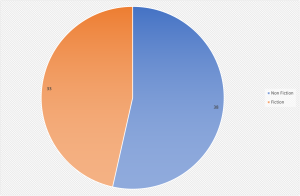Playlist:
“Dissecting” by CFCF
“Urchin” by Arca
“Now is Not the Time” by Babe Rainbow
“4101” by Roly Porter
“Battery” by Fatima Al Qadiri
I didn’t post a lot of music here last year. That wasn’t a deliberate decision, just how things worked out; 2015, in fact, was not a big year in music for me, and so the blog reflects that. I’m hoping that 2016 will be different, though, and with that in mind I’m starting off with a few tracks I’ve liked in the last few weeks. Not only do I like each of these individually, but collectively they present a pretty accurate picture of the kind of thing I’ve been listening to recently. All of these artists have put albums out recently except Fatima Al Qadiri, who has a new one coming on March 4.
Article: “Policing the Future” by Maurice Chammah
The criminal justice system punishes people for committing crimes, which, we hope, will also deter other people from committing crimes in the future. Punishment itself is ideally kind of incidental to the real goal, which is security. We want the police to “keep us safe,” and that means not simply catching criminals but preventing crimes from happening in the first place. In order to do that, they make guesses about where crimes are likely to happen, and who is likely to commit them. There’s nothing surprising about this, but it prompts important questions about how good they are at guessing.
Chammah describes efforts by the St. Louis County police, operating in the wake of the shooting of Michael Brown and the subsequent protests in Ferguson, to make use of predictive policing software to take the guessing out of the hands of officers. This, of course, introduces a raft of new problems. It’s too early to say whether these systems are accurate (whatever that would mean), whether they will actually reduce crime levels, and whether that reduction will be worth it. But it’s pretty clear this where things are headed; police departments are spread thin and under increasing scrutiny, so anything that allows them to use resources more efficiently will have an irresistible appeal— especially if it also allows them to say that the biases of individual officers have somehow been taken out of the equation.
Article: “Everything about Everything: David Foster Wallace’s ‘Infinite Jest’ at 20” by Tom Bissell
The question Bissell asks in this piece is why Infinite Jest has aged as well as it has, but through that question he gets at a lot of what is so great about the book: the insight into out relationship to “entertainment”; Wallace’s ability to create distinct, specific, idiosyncratic characters in just a few sentences (though he doesn’t mention Mario, who in my private theory is actually the most important character in the book); and the polyvalent, promiscuous beauty of his style (which is seriously underrated; read the first paragraph of The Pale King and tell me who was doing it better).
I’ve pretty much given up on trying to get people to read Infinite Jest—although everybody really should; the length and the endnotes have proved to be insuperable barriers. I have no particular reason for posting this article, therefore, except that it gives me an excuse to rave about Infinite Jest again. In a discussion of The End of the Tour the recent movie about Wallace, NPR’s Katie Presely hit on what it is about this book better than anyone else I’ve ever heard when she said that, while you’re deeply enmeshed in it, it becomes possible to believe that it is the only book in the world, because it seems to contain everything there is. In a sense, then, it can’t get old, except in the way that the world is old.
Article: “Pool Jump Epic Fail” by Dan Nosowitz
Junkin Media is a company that monitors various web video sources, identifies videos that look like they have “viral” potential, and offers their creators money (often not very much) for the rights to redistribute them through Junkin’s own outlets, or to license them to other media outlets, including major network shows like Good Morning America. This, despite what all good sense would suggest, is apparently a good way to make a lot of money. It’s also, according to Nosowitz, undermining the spotnaneity, serendipity, and straight up weirdness of the internet, because the success of Junkin (and a few competitors) means we’re all increasingly watching and commenting on the same things, rather than gravitating toward any of a million little digital niches. It’s creating, in other words, a blockbuster culture on the internet, in which, like Hollywood movies, a few massive hits get all the attention. I’m not sure I but this entirely— the internet is still pretty weird— but it’s worth thinking about the extent to which technology that was designed precisely to be decentralized can be turned toward the creation of a monoculture.
Article: “Stealing White” by Del Quentin Wilber
Apparently making things white— really white— is harder than you’d think. Most of the things we buy that are really white are colored with titanium dioxide, which is in everything from house paint to, alarmingly, foods like the cream filling in Oreos. DuPont (and now a spin-off company called Chemours) mastered an efficient process for making titanium dioxide back in the 1950s, and have held on tight to the details of the method ever since, giving them a significant advantage in the market. So, Chinese companies, with government backing, decided to steal the secret from them.
The details of the story are really not all that remarkable; basically, a Chinese executive named Walter Liew paid discontented former employees to sell him information until he got close enough to figure out the rest. He was then able to win major government contracts to produce titanium dioxide using DuPont’s process. Probably the most striking thing about this story is the way it illustrates the normalization of this kind of thing in Chinese business practices; rather than hiding how he had obtained his information from prospective clients, Liew made an explicit point of saying he was using the DuPont process, and his clients took this as a guarantee of quality without asking too many questions.
Nothing about this is really new, though; I recently read For All the Tea in China, by Sarah Rose, which tells the story of Robert Fortune’s quest in the 1850s to steal the secrets of tea production, as well as thousands of living tea plants, from China, which had a virtual monopoly on tea until then. So this is a familiar story, and it goes in both directions.


